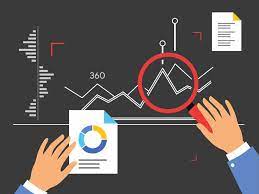Sales forecasting is the process of estimating future sales. Accurate sales forecasts enable companies to make informed business decisions and predict short-term and long-term performance. Companies can base their forecasts on past sales data, industry-wide comparisons, and economic trends.
It is easier for established companies to predict future sales based on years of past business data. Newly founded companies have to base their forecasts on less-verified information, such as market research and competitive intelligence to forecast their future business.

Sales forecasting gives insight into how a company should manage its workforce, cash flow, and resources. In addition to helping a company allocate its internal resources effectively, predictive sales data is important for businesses when looking to acquire investment capital.
Sales forecasting allows companies to:
· Predict achievable sales revenue;
· Efficiently allocate resources;
· Plan for future growth.
An Example of Faulty Sales Forecasting
Many Sales Forecasting reports give numbers like “this prospect will provide $200 million in terms of revenue to the company and the company’s profit will be $80 million, from which the Sales Department’s profit will be $10 million.” Unfortunately, no one ever cares to understand where this number came from. Many times, it just so happens that this number is nothing but an arbitrary marking of revenues and profits based on simple theoretical calculation.
For instance, your company had earned a revenue of $120 million in the previous year and the company’s profit was $32 million. What the forecasters did was to simply use the same numbers to do a relational pegging and upped the figures by 25%. They did this without even bothering to ask the people working in the field about the ground reality.
This type of a faulty planning results in widely incorrect predications and losses in investment oriented expenditures. And this happens because such planning lacks one of the building blocks of SMART planning, i.e., being realistic.
Sales Forecasting cannot be conducted out of thin air. There is no magical trick for an effective sales forecast. Only by the sheer combination of previous performances and future assumptions that come out to be ”very strategic” guesses, which are framed after considering the data that is based on ground reality and not projections.


